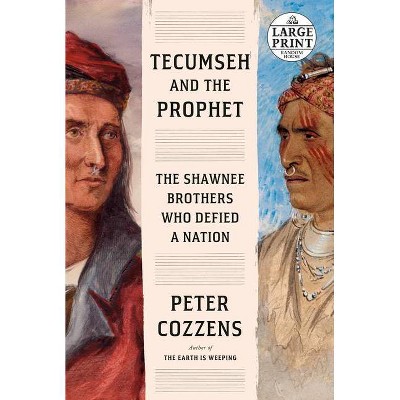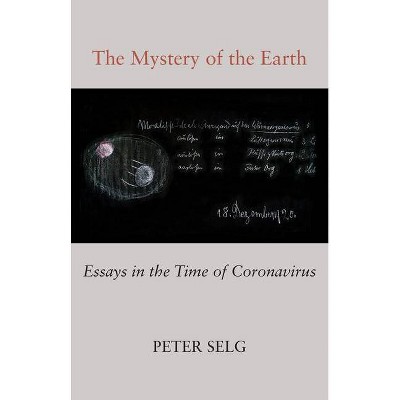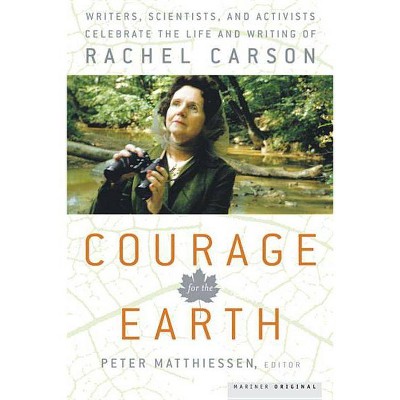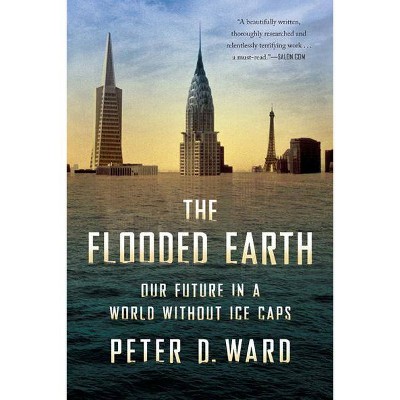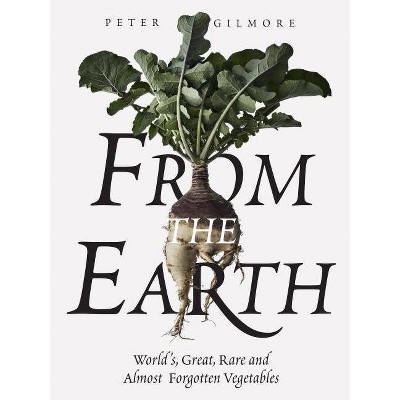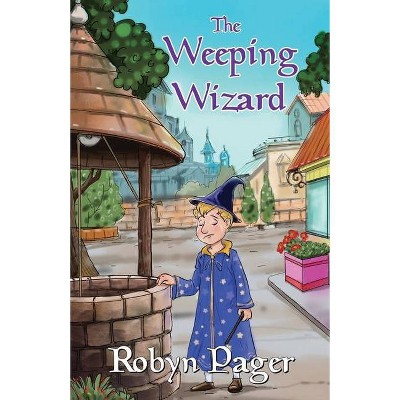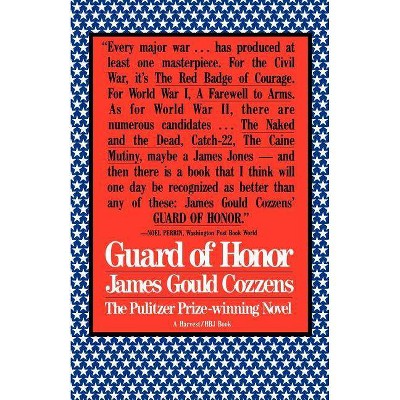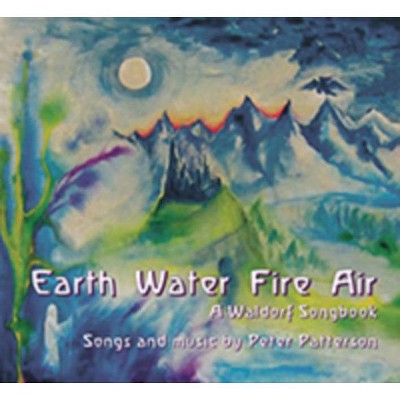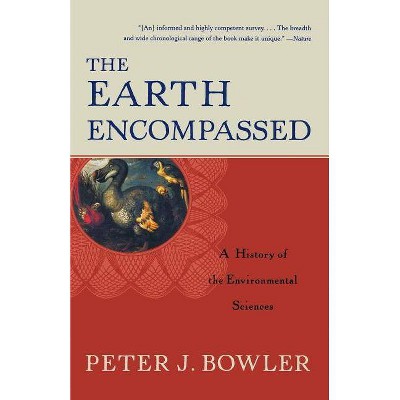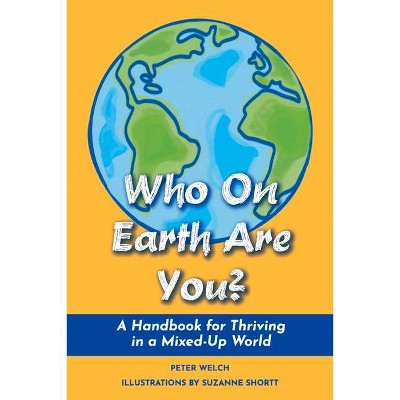The Earth Is Weeping - by Peter Cozzens (Paperback)
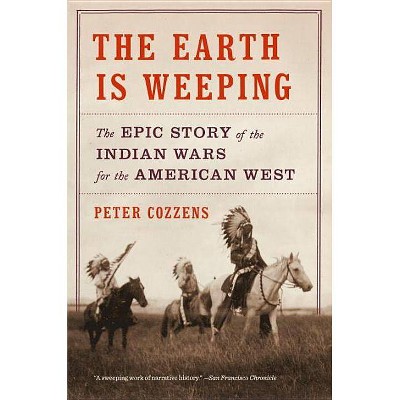
Similar Products
Products of same category from the store
AllProduct info
<p/><br></br><p><b> About the Book </b></p></br></br>"With the end of the Civil War, the nation recommenced its expansion onto traditional Indian tribal lands, setting off a wide-ranging conflict that would last more than three decades. In an exploration of the wars and negotiations that destroyed tribal ways of life even as they made possible the emergence of the modern United States, Peter Cozzens gives us both sides in comprehensive and singularly intimate detail. He illuminates the encroachment experienced by the tribes and the tribal conflicts over whether to fight or make peace, and explores the squalid lives of soldiers posted to the frontier and the ethical quandaries faced by generals who often sympathized with their native enemies"--Amazon.com.<p/><br></br><p><b> Book Synopsis </b></p></br></br><b>Winner of the Gilder Lehrman Prize for Military History<br><b>Winner of the 2017 Caroline Bancroft History Prize</b><br>Shortlisted for the <i>Military History Magazine</i> Book of the Year Award <p/></b>After the Civil War the Indian Wars would last more than three decades, permanently altering the physical and political landscape of America. Peter Cozzens gives us both sides in comprehensive and singularly intimate detail. He illuminates the intertribal strife over whether to fight or make peace; explores the dreary, squalid lives of frontier soldiers and the imperatives of the Indian warrior culture; and describes the ethical quandaries faced by generals who often sympathized with their native enemies. In dramatically relating bloody and tragic events as varied as Wounded Knee, the Nez Perce War, the Sierra Madre campaign, and the Battle of the Little Bighorn, we encounter a pageant of fascinating characters, including Custer, Sherman, Grant, and a host of officers, soldiers, and Indian agents, as well as great native leaders such as Crazy Horse, Sitting Bull, Geronimo, and Red Cloud and the warriors they led. <p/><i>The Earth Is Weeping</i> is a sweeping, definitive history of the battles and negotiations that destroyed the Indian way of life even as they paved the way for the emergence of the United States we know today.<b> <p/><b>A Smithsonian Top History Book of 2016<br>A <i>Times</i> (UK) Book of the Year<br><b><br>Finalist for the Western Writers of America 2017 Spur Award in Best Western Historical Nonfiction</b></b></b><p/><br></br><p><b> Review Quotes </b></p></br></br><br>A detailed recounting of random carnage, bodies burned, treaties broken and treachery let loose across the land. . . . Cozzens admirably succeeds in framing the Indian Wars with acute historical accuracy. . . . [D]emonstrates vast knowledge of American military history. --Douglas Brinkley, <i>The New York Times Book Review</i> <p/>[S]ets a new standard for Western Indian Wars history. . . . [T]he most comprehensive, insightful synthesis of the conflict between the Western tribes and the United States government and citizens published by a popular New York press in decades. . . . Like William Manchester's <i>The Glory and the Dream . . . </i>[Cozzens'] brilliant thesis and detailed narrative will sustain the reader...from the prologue to the conclusion. . . . [S]uccinctly seeks a sharper understanding of the cause and effects of the American government's policies, citizen relations with the tribes, intertribal history and warfare, and the United States' massive immigration into the West during and after the Civil War. --Stuart Rosebrook, <i>True West Magazine</i> <p/><i>"</i>A] valuable contribution. . . . [S]weeps across 25 years of U.S. Indian policy, gives clear accounts of battles and raids and introduces generals and chiefs, foot soldiers and warriors. While Cozzens doesn't say he wrote <i>The Earth Is Weeping</i> to supplant<i> [Bury My Heart at] Wounded Knee</i>, he does express his hope that it will bring balance and better understanding of the Indian Wars of the American West. In that, he succeeds." --John B. Saul, <i>The Seattle Times</i> <p/>"[S]corching vividness. . . . [C]risp, muscular prose that offers clear pictures of men at war. A sweeping work of narrative history that synthesizes the work of countless historians, the book . . . recognizes fragments of nobility and humanity amid epic tragedy. Without implying any false equivalence, Cozzens emphasizes history's tangled complexity." --Dan Cryer, <i> The San Francisco Chronicle</i> <p/>A comprehensive look. . . . A striking and thorough explanation. . . . The structure of the book allows the interweaving of timelines and historical context in a way that makes the heavy subject matter extremely readable and also thought provoking. Cozzens . . . takes to heart his own words of warning about the myths that pervade pop culture. . . . This is a history book, but it is also a present-tense book, full of ironies about how we're not so different from 19th century Westerners. --Erin H. Turner, <i>Big Sky Journal</i> <p/>[S]nappy prose, a strong narrative cadence, and admirable clarity. Cozzens is a gifted writer. . . . It's one of the strengths of the book that Cozzens lets none of his cast of characters--Euro-Americans, Native Americans, political figures, military officers, and all the rest--off the hook for responsibility for what happened. Written briskly, it draws you in; its maps are unusually numerous and clear; its comprehensiveness, making it useful to anyone wishing to know the facts of the many, distinct Indian wars, is unlikely to be surpassed. For those wishing to learn the story of the Indian wars of the American West, this is the book to turn to. <i>--</i>James M. Banner Jr., <i> The Weekly Standard</i> <p/>An evenhanded and smoothly written volume that is no less ambitious in scope than <i>Bury My Heart at Wounded Knee</i>. --Andrew Graybill, <i>The American Scholar<br></i><br>Cozzens does an exceptional job of examining the viewpoints of both sides, making heavy use of previously untapped primary sources. . . . This is a timely and thorough book, presenting the story without hyperbole or histrionics of this controversial chapter in American history, providing an excellent one-volume history of America's actual longest and most tragic war. --Jerry Lenaburg, <i> New York Journal of Books</i> <p/>I've been waiting for an up-to-date, objective, and well-researched book on the Indian Wars, and Peter Cozzens' <i>The Earth Is Weeping</i> is all that and more--an elegantly written narrative of one of the great sagas in American history, and better than <i>Bury My Heart at Wounded Knee</i>. --James Donovan, author of <i>A Terrible Glory</i> and <i>The Blood of Heroes</i> <p/>[A]magnificent single-volume account of the post-Civil War conflicts that shaped our history and the mythology of the frontier. . . . In examining the various Indian tribes and subgroupings within them, Cozzens does an admirable job of conveying their complexity and political divisions. This is a beautifully written work of understanding and compassion that will be a treasure for both general readers and specialists. --Jay Freeman, <i>Booklist </i>(STARRED review) <p/>[A]dds a missing perspective on the lives of ordinary people on both sides. Grand plans descended into confusion and cross purposes, alliances and loyalties shifted momentarily, and soldiers and warriors and their families spent most of that quarter-century tired, hungry, discouraged, trying just to survive the next drought or winter...No wonder their earth wept. --William C. Davis, author of <i>Three Roads to the Alamo</i> and <i>An Honorable Defeat</i> <p/>Peter Cozzens reminds us that tragedy, not melodrama, best characterizes the struggles for the American West. . . . <i>The Earth Is Weeping</i> is the most lucid and reliable history of the Indian Wars in recent memory. --Victor Davis Hanson, author of <i>Carnage and Culture</i> <p/>A comprehensive assessment of the wars for control of the American West. Highly recommended for the intertwined history of Native Americans and the post-Civil War frontier U.S. Army. --Nathan Bender, <i>Library Journal</i> <p/>Peter Cozzens, one of our finest working historians, has taken on a massive chunk of Native American history and delivered it with power, style, and insight. . . . There is much wisdom here, and much good writing. --S.C. Gwynne, author of <i>Empire of the Summer Moon</i>, and <i>Rebel Yell</i> <p/>[A] thorough history of the 1860-1890 Indian Wars. --<i>The Week</i> <p/>The uninterrupted succession of armed conflicts between the U. S. army and Indians on the Great Plains and Rocky Mountains from the 1860s to 1890, with fatalities mounting into the thousands, were truly America's longest and most tragic war. In sobering detail, Peter Cozzens has chronicled this dark chapter in our history. --James M. McPherson, author of <i>The War That Forged a Nation</i> and <i>Battle Cry of Freedom</i> <p/>A valuable panoramic view... Treachery on such an epic scale can bear many retellings, and this account stands out for its impressive detail and scope. --Priyanka Kumar, <i> The Washington Post</i> <p/>[S]cores of fascinating characters... [V]ivid descriptions of ordinary people on both sides. . . . [A] sweeping, sharp and stylish history of the Indian Wars of the second half of the 19th century--and their tragic consequences for the native people. Cozzens retells familiar stories . . . with panache. --Glenn C. Altschuler, <i>Star Tribune <p/></i>In this comprehensive, well-researched and beautifully written book, Peter Cozzens weaves together the many particular histories of the Indian Wars to present a multifaceted view of the era. --<i>Foreign Service Journal<br></i><br>[V]eteran historian Cozzens brings verve and a mastery of the era as the chronicles the personalities, politics and bloody clashes. . . . [D]oes full justice to the complexities of this history. --Matthew Price, <i>Newsday</i><br><p/><br></br><p><b> About the Author </b></p></br></br><b>PETER COZZENS</b> is the author or editor of seventeen acclaimed books on the American Civil War and the Indian Wars of the American West, and a member of the Advisory Council of the Lincoln Prize. In 2002 he was awarded the American Foreign Service Association's highest honor, the William R. Rivkin Award, given annually to one Foreign Service Officer for exemplary moral courage, integrity, and creative dissent.
Price History
Cheapest price in the interval: 14.99 on March 10, 2021
Most expensive price in the interval: 15.39 on December 20, 2021
Price Archive shows prices from various stores, lets you see history and find the cheapest. There is no actual sale on the website. For all support, inquiry and suggestion messagescommunication@pricearchive.us
